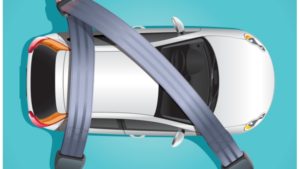
With globalization making the world small, businesses have crossed the geographical boundaries. Nowadays, businesses are not localized in nature. Manufacturers are selling their goods in other countries and exploring new markets for their products. That is why the transportation of goods from one place to another has become a common practice for almost all businesses. This is why cargo insurance becomes of utmost importance to most businesses.
Though transportation of goods helps businesses expand their market, the risks associated with such transportation cannot be ignored. If the goods are damaged in transit, the business incurs a heavy loss. To cover such losses suffered by businesses, marine insurance policies are available. These policies cover the damages suffered when goods are transported from one place to another.
Marine insurance is broadly divided into two parts – cargo insurance and hull insurance. While cargo insurance covers the goods being transported, hull insurance covers the transportation vehicle. Cargo insurance is relevant for businesses transporting goods and is, therefore, very popular.
Let’s understand what cargo insurance is all about –
Table of Content
- What is cargo insurance?
- Who can buy cargo insurance?
- What is covered under cargo insurance?
- Exclusions under cargo insurance
- Types
- Important terms
- Frequently Asked Questions
What is cargo insurance?
Cargo insurance is a type of marine insurance policy which covers the goods which are transported from one place to another. A cargo insurance policy usually covers the goods from their place of transport to the destination. The policy, thus, safeguards the business from the loss suffered if the goods being transported are damaged before reaching their destination.
Covered transportation under cargo insurance
A cargo insurance policy covers transportation through the following means –
- Water
- Air
- Road
- Rail
- Registered postal parcel
- Courier
You can also buy a policy for covering transport by more than one of the above-listed means.
Who can buy cargo insurance?
Cargo insurance can be bought by the following –
- Merchants involved in importing and exporting of goods
- Buyers of goods
- Sellers of goods
- Buying agents
- Banks
- Contractors, etc.
What is covered under cargo insurance?
Coverage under a cargo insurance policy is determined by the Institute Coverage Clause (ICC) which you buy with the policy. ICC is the standard coverage under cargo insurance which is accepted by all marine insurance companies. There are three types of ICCs which are as follows –
Institute Coverage Clause ‘C’
This clause gives the basic coverage under a cargo insurance policy. The coverage includes only named perils which are as follows:
- Fire and/or explosion
- Overturning, collision or derailment of the transportation vehicle
- Jettison
- Discharge of the cargo at a point of distress
Institute Cargo Clause ‘B’
This clause is wider than ICC ‘C’ as it covers the damages suffered due to the following perils:
- Perils covered under ICC ‘C’
- Earthquakes
- Lightning
- Volcanic eruptions
- Water seepage into the transport vessel or storage area
- Losses suffered when loading or unloading the goods
Institute Cargo Clause ‘A’
This is also called ‘All Risk Cover’ as it includes all the perils due to which the goods can be damaged. The coverage includes the following perils:
- Perils covered under ICC ‘C’ and ICC ‘B’
- Loss due to rainwater
- Theft, pilferage or any other type of malicious damage
- Shortage, breakage or any type of partial loss
- Any other losses suffered by the cargo other than the excluded ones
You can choose any type of coverage clause but ICC ‘A’ is better because of the comprehensive scope of coverage that it provides.
Exclusions under cargo insurance
Though cargo insurance policies provide quite a comprehensive scope of coverage, there are some perils and instances of loss which are not covered by the policy. Common exclusions under marine cargo insurance policies include the following –
- Damages suffered due to negligence and/or wilful misconduct
- The loss suffered due to delay in transportation
- Damages which occur when goods are not properly packaged
- Perils like war, riots, civil commotion, strike, etc.
- Costs incurred in removing the wreckage after a damage
- Damages suffered due to biological, nuclear or chemical weapons
- Damages due to radioactive contamination
- If the charterers, managers, owners or operators of the vessel become financially insolvent and are unable to transport the goods, the consequent losses would not be covered
- Inherent vice in the cargo which is certain to cause damage
- Normal loss in weight of the cargo and leakage or breakage of goods
- If the transportation vehicle is unseaworthy, i.e., not fit to transport the goods, but the vessel is used for transportation, consequent losses would not be covered
Types of marine cargo insurance policies:
Now that you know the coverage and exclusions under cargo insurance plans, you should also know the different types of plans which are available in the market. Since the transportation needs of different businesses might be different, cargo insurance plans come in the following variants –
| Type of policy | Meaning |
| Voyage policy | The policy covers a particular voyage from one place to another |
| Time policy | The policy covers any number of voyages within a particular tenure. The tenure is, usually, one year |
| Mixed policy | The policy combines voyage and time policies. It covers unlimited transportation in one route during a particular time period |
| Valued policy | Under this policy, the value of the cargo is mentioned before taking insurance. Coverage is, therefore, limited up to the specified value of the cargo |
| Unvalued policy | Under this policy, the cargo is not valued before it is insured. The value is determined after a loss occurs |
| Floating policy | Multiple voyage policies make up a floating policy. The policy has a floating sum insured and multiple voyages are covered up to the sum insured |
| Block policy | The policy covers the cargo from the time it leaves the seller’s warehouse and up to the time it reaches the buyer’s warehouse |
Important terms associated with cargo insurance
Marine cargo insurance policies have some technical terms associated with them which might confuse you. So, here are some common technical jargons simplified –
EXW (Ex-Works)
The full form of EXW can be Ex-works, ex-warehouse, ex-place, etc. Under EXW cargo insurance plans, the buyer is supposed to collect delivery of the goods from the seller. Any damage to the cargo before the buyer collects it would be the liability of the buyer. As such, the buyer buys a cargo insurance policy on EXW to insure his liability.
FOB (Free on Board)
FOB means Free on Board. FOB policies make it the seller’s liability for loading the goods on the ship. If the goods are damaged before they are loaded on the vessel, the seller would face a loss. That is why the seller buys a FOB cargo insurance policy for covering his liability. The seller’s liability is over once the goods are loaded. The buyer then needs to buy another policy to cover the risk of damage during transportation and unloading of the goods.
CFR (Cost and Freight)
The full form ofCFR is Cost and Freight. If the seller pays the freight charge for booking the transportation vehicle, he incurs an additional cost. To cover this cost the seller buys CFR policy which pays the loss of freight in case the goods are damaged.
CIF (Cost, Insurance, Freight)
CIF means Cost, Insurance Freight. If the buyer asks the seller to buy a marine cargo insurance policy from the seller’s warehouse to his warehouse, the seller can buy a CIF policy. This would be a single policy covering all the risks from the origin to the destination. The policy would belong to the seller until the goods are loaded onto the transportation vehicle. Once loaded, the ownership of the policy would change and the buyer would become the policyholder. Thus, a single policy would cover the risks faced by the buyer as well as the seller.
DDP/DAP (Delivered Duty Paid / Delivered at Place)
DDP/DAP means Delivered Duty Paid / Delivered at Place. These contracts are applicable if the buyer has superiority over the terms of transportation. Usually, in such situations, the sellers are required to transport the goods to the buyer’s place. Thus, the seller faces the liability of loss if the goods are damaged until they reach the buyer’s place. To cover this liability the sellers buy a DDP/DAP cargo policy and the buyers are not required to buy any plan since they don’t face any risk of loss in transportation.
Cargo insurance plans can be a bit complicated if they are not understood properly. So, understand the policy in detail, its coverage clauses, perils covered and the important terms associated with it before you buy so that you know the coverage inside out.
Frequently Asked Questions:
- Who is responsible to buy cargo insurance?
A cargo insurance policy is to be bought by the buyer or seller depending on the liability faced by them.
- Is inland transportation covered under cargo insurance?
Yes, transportation of goods within India is also covered under cargo insurance.
- What is the Institute Cargo Clause (Air)?
This coverage clause is applicable if the goods are being transported by air.
- Do cargo insurance policies provide extensions?
Yes, coverage extensions are available under marine cargo insurance policies. Common extensions include the following-
-
- Costs incurred on loading and unloading of goods
- Customs duty
- Removal of debris after the loss has incurred, etc.
Found this post informational?
Browse Turtlemint Blogs to read interesting posts related to Health Insurance, Car Insurance, Bike Insurance, and Life Insurance. You can visit Turtlemint to Buy Insurance Online.




























